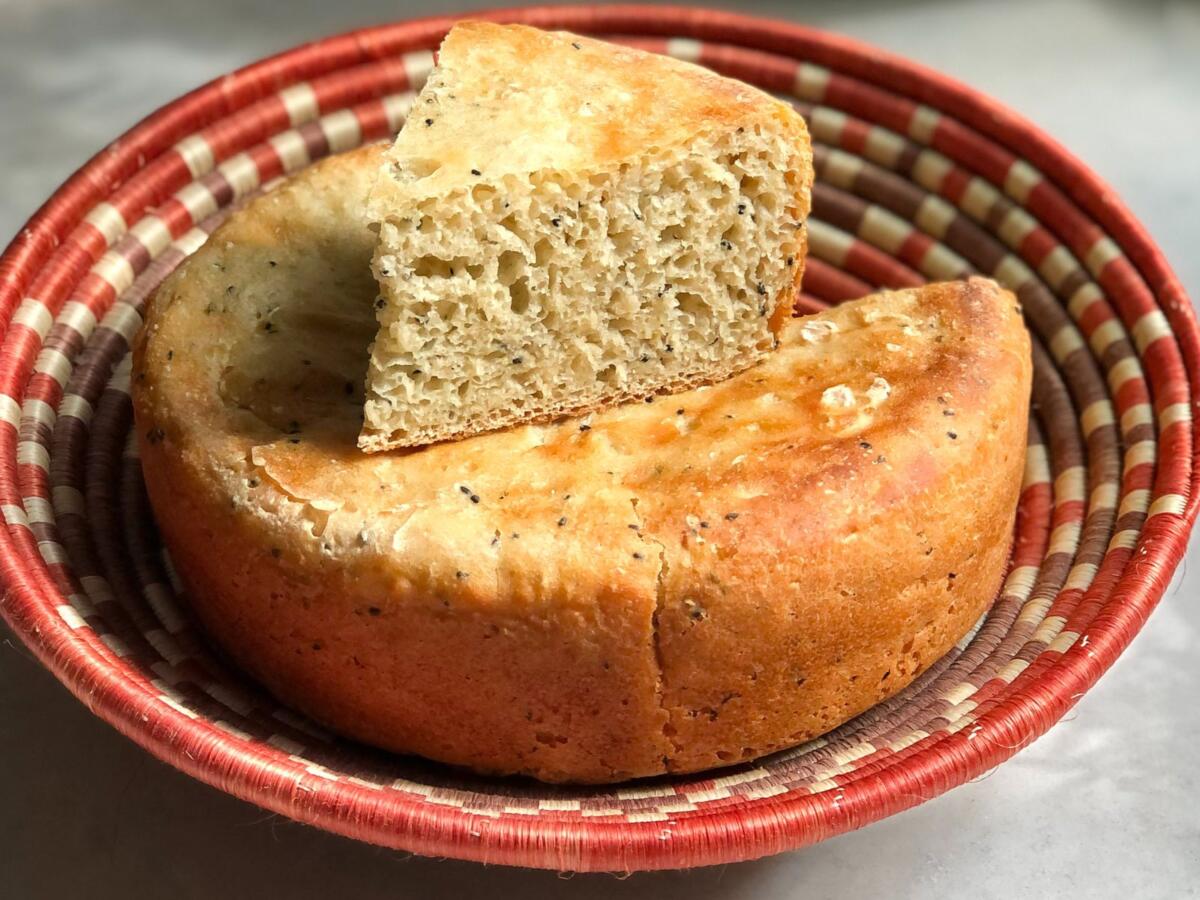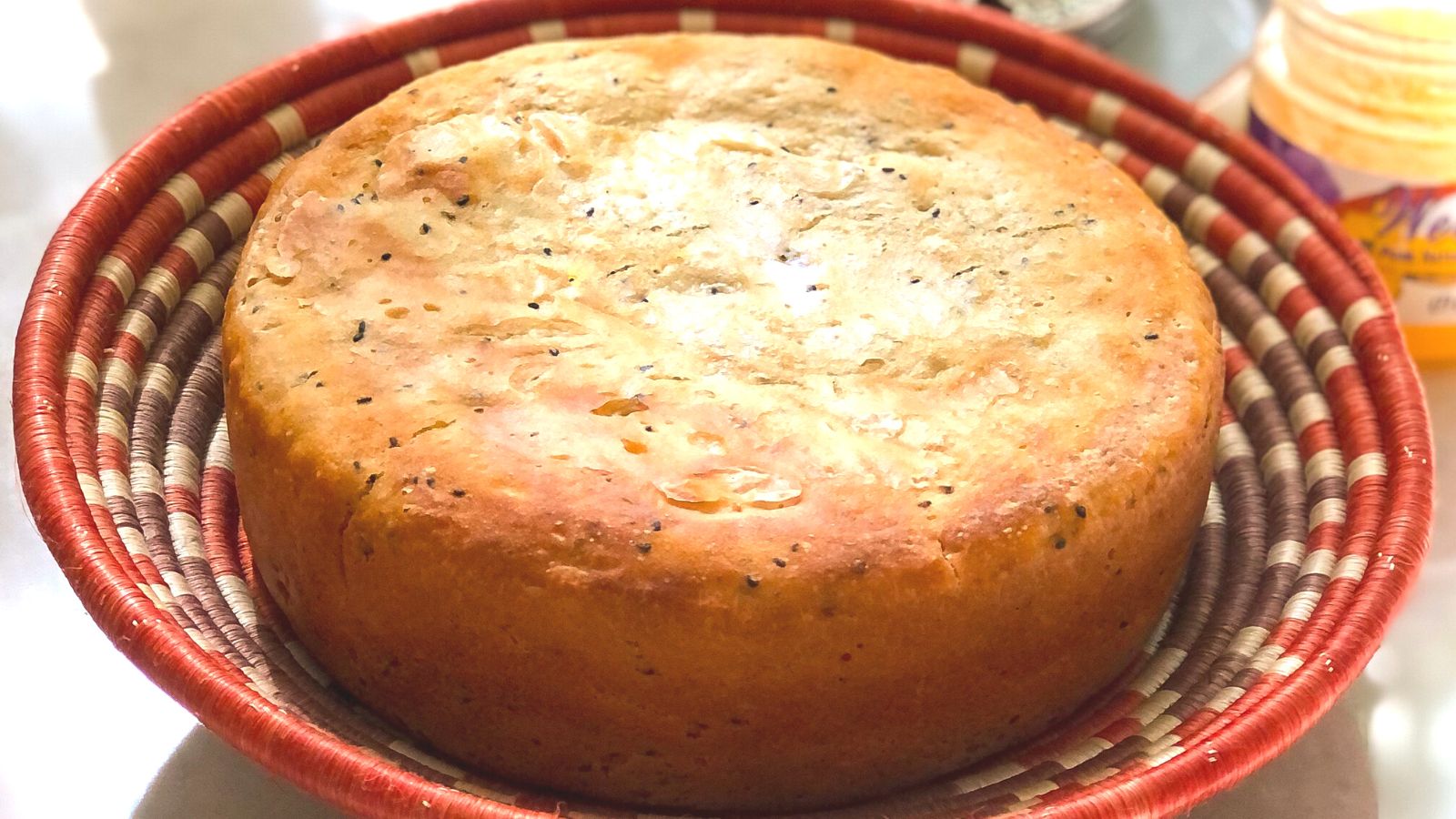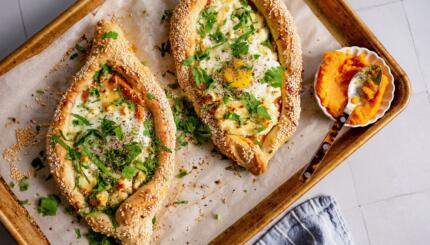Sigd is a Jewish-Ethiopian holiday that symbolizes the renewal of the union between God and the people of Israel marked 50 days after Yom Kippur. The holiday serves for communal self-examination, similar to the individual self-examining during Yom Kippur, and includes fasting and prayer. The idea behind the holiday is that in order to leave the diaspora and move to Israel, the community as a whole needs to repent.
In Ethiopia, members of the Beta Israel community used to gather on high mountains resembling Mount Sinai where the Kessim (religious leaders) read from the Bible. These days in Israel, the community congregates in Jerusalem on a mountain facing the Old City and Temple Mount. Members of the Ethiopian Jewish community fast during the day and after the prayers are over, the women hand a baked bread called dabo to the Kessim for a blessing, then everyone can break their fast.
Dabo is round and crumbly with a touch of sweetness. In Ethiopia the bread was baked in a round clay pot over embers in a fire pit in the ground. It was wrapped in banana leaves to prevent it from sticking to the pot and to keep the bread moist. Upon moving to Israel, Ethiopian Jews changed their baking technique. Now the bread is baked on a burner or in the oven, and the bread is either wrapped in lettuce leaves, or in parchment paper, which serves the same purpose as the banana leaves.
Dabo was always considered a festive bread, served on Shabbat and holidays, as opposed to the better-known injera flatbreads, which are used for everyday meals.
The Nosher celebrates the traditions and recipes that have brought Jews together for centuries. Donate today to keep The Nosher's stories and recipes accessible to all.

To break the fast on Sigd, Ethiopian Jews feast on lamb or chicken stew with potatoes and eggs, all served with dabo. Dabo is also served during Shabbat and holidays, and is considered a staple of Jewish Ethiopian Shabbat breakfasts as well.
Ingredients
- 2¼ tsp instant dry yeast
- 1 cup lukewarm water
- 1 tsp sugar
- 3½ cups (1¼ lb) all-purpose flour (you can replace 1 cup with farina if desired)
- 1 tsp kosher salt
- 1 Tbsp honey or sugar
- 1 Tbsp vegetable oil
- 1 Tbsp baking powder
- 1 Tbsp nigella seeds (optional)
Directions
- Dissolve yeast in ¼ cup lukewarm water mixed with 1 teaspoon sugar, stir and let stand 5-10 minutes, until yeast foams vigorously.
- Mix flour, honey and oil in the bowl of a stand mixer fitted with dough hook. Add yeast and the rest of the water and knead for 2 minutes. Add salt, baking powder and nigella seed (if using) and continue to knead on medium-high speed for 5 minutes. If dough is too stiff, add a couple of tablespoons of water at a time. Remove bowl from mixer, cover with plastic wrap and let stand in a warm place for 2-3 hours, until dough doubles in volume.
- Grease a tall oven-proof pot 7-8 inches in diameter, or layer it with parchment paper. Pour dough in, cover with towel and let stand for 30 minutes more until it rises again.
- Preheat oven to 350 degrees F (180 degrees C).
- Put a round piece of parchment paper on top of the dough, to prevent not from touching the aluminum foil. Cover pot tightly with greased aluminum foil and top with a baking sheet and bake for 30 minutes. Now flip the pot over onto the baking sheet (so the bread is upside down) and bake for another 30 minutes.
- Remove bread from oven, flip bread out of the pot, let cool and serve warm or at room temperature.



